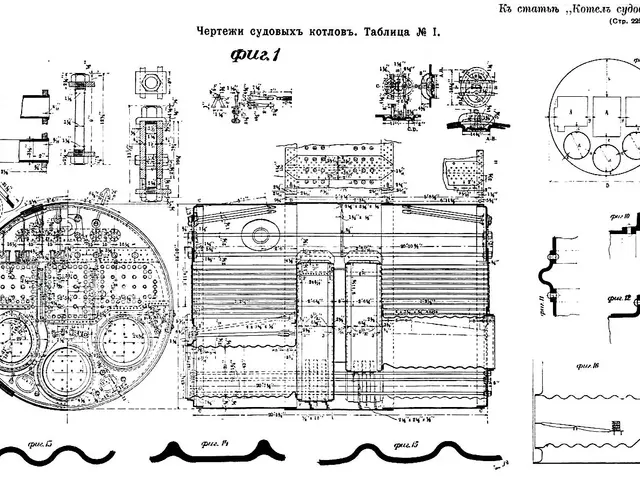Is the UK's two-party system facing its demise?
Breaking Tradition and Boundaries: Reform UK's Surge in British Politics
Holding a smile as broad as the skyline of London, Nigel Farage was the picture of triumph last Friday. The leader of the right-wing populist Reform UK had a good reason to be gleeful – his party had secured a victory that marked a significant shift in the decades-long political landscape of Britain.
The by-election in the Runcorn and Helsby constituency saw Reform UK overturn an almost 15,000-vote Labour majority, a feat that hubristic Nigel proudly displayed with his six fingers – a nod to the six deciding votes.
But the political message was clear, even beyond this narrow win. In the local elections that took place just a day after, Reform UK made a powerful statement, taking control of ten local councils and winning 677 out of 1,600 council seats. They also bagged first place in two mayoral elections – one in Greater Lincolnshire and another in Hull & East Yorkshire.
On the other hand, the traditional political giants, the Conservatives, and Labour, witnessed their voter base erode dramatically. Both parties suffered heavy losses, with the Conservatives losing 674 local seats and Labour 187, while neither party managed to take control of a single council.
Challenging the Political Dominance
The increased fragmentation of the party system in Britain over the past few years has been a growing trend, with even the most dominant players like Labour and the Conservatives feeling the heat.
Political experts are debating whether the traditional political duopoly could come to an end, with one expert, Tim Bale from Queen Mary University of London, declaring the domination of Labour and the Conservatives "possibly at an end for good."
While Reform UK surged ahead in the local elections, the Liberal Democrats also made notable gains, penetrating strongholds that had previously belonged to the Conservatives. Professor Bale attributes the rise of Reform UK to the failure of the traditional parties to deliver tangible improvements in people's lives and public services, and their tendency to overpromise while underdelivering.
A Crisis for Conservatives, a Problem for Labour
The by-election victory and local election results pose a significant challenge to both Labour and the Conservatives, albeit in different ways.
For Labour, while they still hold power as the ruling party, they have four years ahead to set the agenda and try to deliver on their promises. But the fear is that governmental success may dilute the appeal of Reform UK among voters.
Conversely, the Conservatives, who were decimated in the 2024 general election after fourteen years in power, face a severe crisis. While experts caution that local elections may not always reflect the voting behavior at general elections, they warn that the Conservatives could be facing an existential crisis at the national level.
The results of the local elections showed a dramatic shift, with the party that had once been 'the party of everywhere' being reduced to 'the party of nowhere' in just four years.
The Original and the Imitation
Both Labour and the Conservatives will have to navigate their way through the political landscape carefully, resisting the temptation to mimic the emotional performance politics championed by Nigel Farage.
Political analyst Robert Ford suggests that the parties should avoid trying to offer cheap imitations of Farage and his politics. Instead, they need to focus on their core strengths and stake their claims on a different political turf.
The road ahead is not easy, and both parties will need to tread carefully to avoid stumbling into the trap of 'Farageism.'
- Nigel Farage's beaming smile on Friday was a testament to Reform UK's victory in the Runcorn and Helsby by-election, a victory that marked a significant shift in British politics.
- The Reform UK party overturned an almost 15,000-vote Labour majority, a feat that has raised questions about the longevity of the traditional political dominance in Britain.
- In the local elections that followed, Reform UK took control of ten local councils and won 677 out of 1,600 council seats, indicating a potential end to the domination of Labour and Conservatives in British politics.
- Both the Conservatives and Labour suffered heavy losses in the local elections, with the Conservatives losing 674 local seats and Labour 187, while neither party managed to take control of a single council.
- Political experts are debating whether the traditional political duopoly could come to an end, with one expert suggesting that the domination of Labour and the Conservatives "possibly at an end for good."
- The Reform UK's rise is attributed to the failure of traditional parties to deliver tangible improvements in people's lives and public services, and their tendency to overpromise while underdelivering.
- The local elections results pose a significant challenge to both Labour and the Conservatives, with Labour facing the fear that governmental success may dilute the appeal of Reform UK among voters, while the Conservatives could be facing an existential crisis at the national level.








